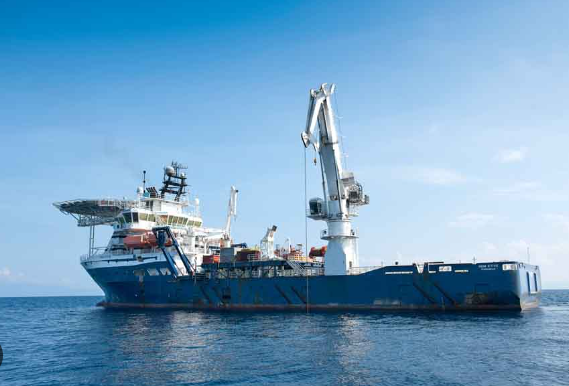Papua New Guinea: despite the moratorium, ship engages in seabed mining
People in Papua New Guinea are up in arms after 180 tonnes of seabed matter is extracted. Since 2019, Papua New Guinea had imposed a 10-year moratorium. The Jamaica-based International Seabed Authority is currently meeting to pick a new secretary general, who plays a crucial role in shaping policy vis-à-vis this controversial form of mining, which is backed by important business interests.
Port Moresby (AsiaNews) – Despite a ten-year moratorium imposed by the Papua New Guinea (PNG) government in 2019, foreign companies continue to take materials from the seabed off the coast of the country to prepare for massive deep sea mining activities, the mining industry’s controversial new frontier that looks to the sea as a huge reserve for raw materials.
Solwara 1 Warriors held at a press conference yesterday in Port Moresby to speak out against what is happening. The local advocacy group, which opposes any threat to local ecosystems, includes the Council of Churches of Papua New Guinea. Mavis Tito, national director of Caritas PNG, was present on behalf of the Catholic Church.
Deep Sea Mining Finance Limited has relieved Canada-based Nautilus Minerals Limited in the Solwara project to mine the seabed for copper and gold.
Between May and June, residents of the affected area noticed activities on the west coast of Namatanai, a district of New Ireland province, involving a foreign ship named Coco, which reportedly mined about 180 tonnes of seabed matter for sampling in Singapore.
The Mineral Resources Authority (MRA),the Conservation and Environment Protection Authority (CEPA), and the New Ireland provincial government all claim to have no knowledge of this activity.
Those who allowed the ship to operate in PNG waters did so in secret, keeping in the dark residents of the province as well as the rest of the country.
“Deep sea mining is not needed, not consented,” said Michael Guka, secretary of the Council of Churches. “The ocean is the little blue heart of our planet. It is our common responsibility. We are its guardian[s]”.
The complaint from Papua New Guinea comes just as the Council and the Assembly of the Jamaica-based International Seabed Authority (ISA) is meeting in the Caribbean country.
The ISA is an intergovernmental body charged with regulating seabed mining. Two very distant positions are facing off within the organisation, with some countries seeking a moratorium until a clear regulatory framework is adopted to protect the marine environment and those pressing for mining to go ahead after issuing concessions.
Crucial in this regard will be the election of the new ISA secretary general on 2 August. The current office holder, Michael Lodge of the UK, is known for being soft on mining companies; his rival is Leticia Carvalho, a marine scientist and international diplomat.
26/06/2024 14:06







.png)










